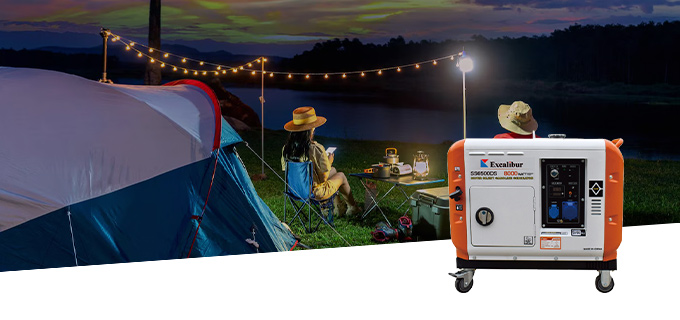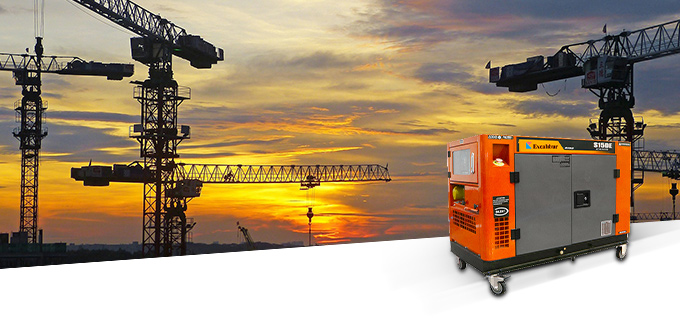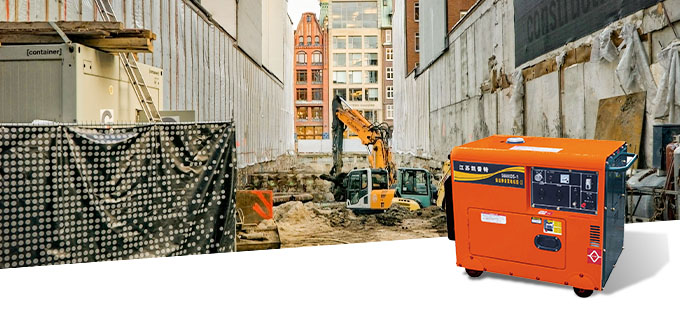As a generator manufacturer, we recognize the crucial role reliable power sources play for your home, business, or industrial needs. Proper maintenance is essential for extending the lifespan of your generator, whether it’s a twin-cylinder or single-cylinder model, running on diesel or gasoline. Here are some small tips for maintaining the best possible condition for your generator.
Regularly Inspect and Change the Oil
Regular oil changes are the most important part of engine maintenance. Clean oil reduces wear and tear, preventing potential engine damage.
Twin-cylinder generators: Due to their larger engines and higher power output, these generators often require more frequent oil changes. Usually, after 100 to 150 hours of operation, check the oil levels and change them in accordance with the manufacturer’s instructions.
Single-cylinder generators: These generators might have longer intervals between oil changes, but regular checks are still necessary. Follow the recommended schedule, usually every 50-100 hours of use.
Keep the Air Filter Clean
A clean air filter ensures the engine gets the air it needs for efficient combustion, reducing fuel consumption and emissions.
Twin-cylinder generators: These models usually have larger air filters that need frequent inspection and cleaning. If the air filter gets damaged or clogged, replace it.
Generators with a single cylinder: Frequently inspect and replace the air filter. A clean air filter is also an important part of maintenance.
Check and Replace Spark Plugs
Spark plugs are necessary for the ignition process to take place. Worn-out or fouled spark plugs can reduce performance and make starting challenging.
Twin-cylinder generators: Make sure both spark plugs are in good condition. Usually, they should be changed every 100 hours of operation, by the maintenance plan.
Single-cylinder generators: Even with just one spark plug, regular inspection and replacement are necessary. Adhere to the manufacturer’s suggested replacement intervals.
Inspect the Fuel System
Engine issues might result from fuel deterioration and pollution. Check the gasoline tank, fuel filters, and fuel lines frequently for obstructions or water contamination.
Diesel generators: Over time, diesel fuel can degrade, causing clogged filters and injectors. If you are going to be away from your generator for a lengthy amount of time, please add a stabilizer. Check and replace fuel filters regularly.
Gasoline generators: Gasoline can also degrade, especially if it contains ethanol. Apply a fuel stabilizer to prevent fuel deterioration, and routinely check and replace fuel filters.
Test the Battery
For generators with electric start features, maintaining the battery is essential. Check regularly that the battery is fully charged and not corroded. Larger batteries found in twin-cylinder generators usually require routine testing and maintenance. Clean terminals and check the charge regularly.
Single-cylinder generators: Even with smaller batteries, regular maintenance is crucial. Keep the battery charged and clean.
Run the Generator Regularly
Running your generator periodically helps keep engine components lubricated and ensures the system is operational.
Twin-cylinder generators: Run them under load periodically to ensure they can handle their full power capacity. This helps prevent issues related to inactivity.
Single-cylinder generators: Regular operation helps maintain engine health and prevents issues caused by prolonged inactivity.
Keep it Clean
Dirt and sand can cause your generator to overheat and cause other problems. Regular cleaning helps prevent these problems.
Twin-cylinder generators: These larger units require more effort to clean. Ensure all components, including vents and cooling fins, are free of debris.
Single-cylinder generators: They are easier to clean due to their smaller size, but regular attention is still necessary. Make sure everything is spotless and unobstructed.
Store Properly
Proper storage is vital for maintaining your generator’s longevity. Store the generator in a cool, dry location away from direct sunlight and moisture.
Diesel generators: Although the engines in diesel generators are often stronger, storage must still be done properly. To avoid condensation, always keep the gasoline tank full and apply a fuel stabilizer.
Gasoline generators: Gasoline engines can be more sensitive to storage conditions. To prevent fuel from deteriorating, drain the tank or add a fuel stabilizer.
Conclusion
Regular maintenance of your twin-cylinder or single-cylinder generator, whether it runs on diesel or gasoline, is essential for ensuring reliable performance and extending its lifespan. By adhering to these maintenance tips, you can ensure an uninterrupted power supply and maximize the return on your investment. Always refer to your generator’s manual for specific maintenance schedules and guidelines.




